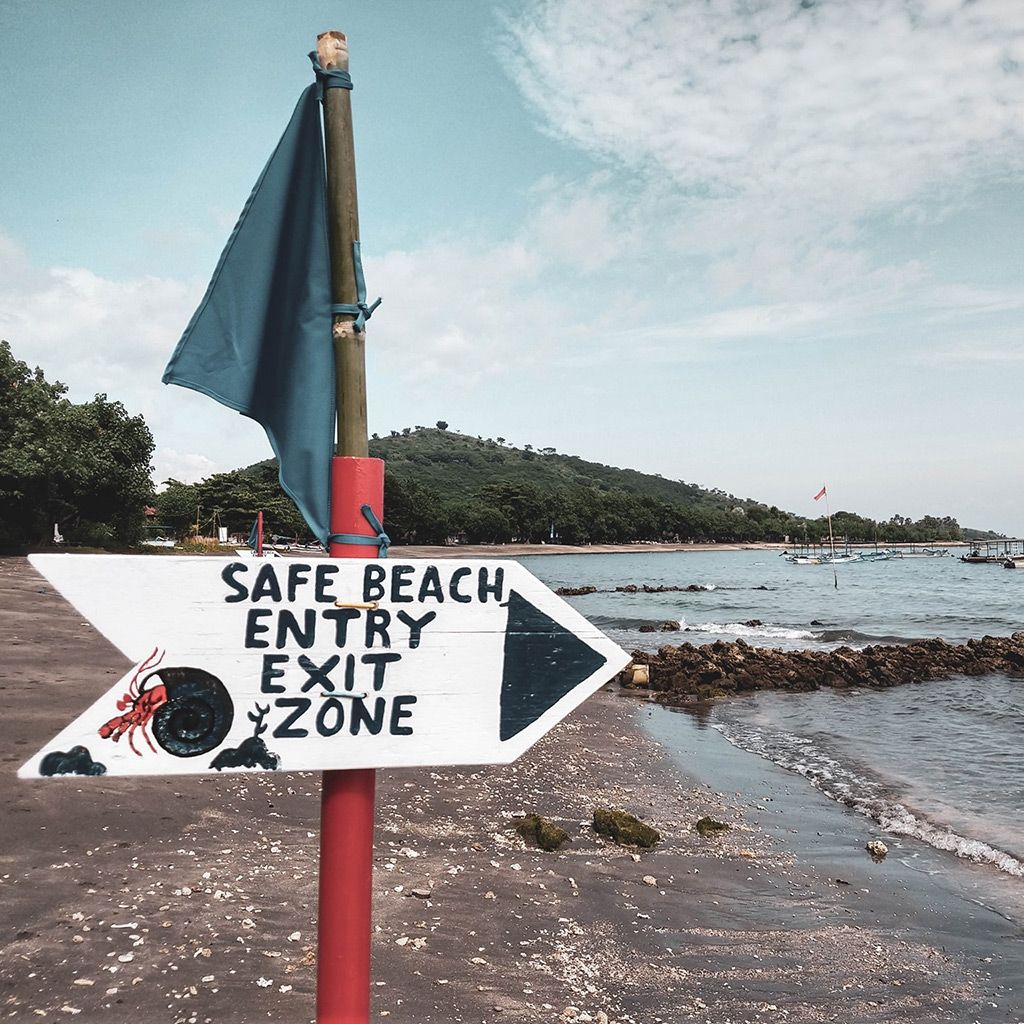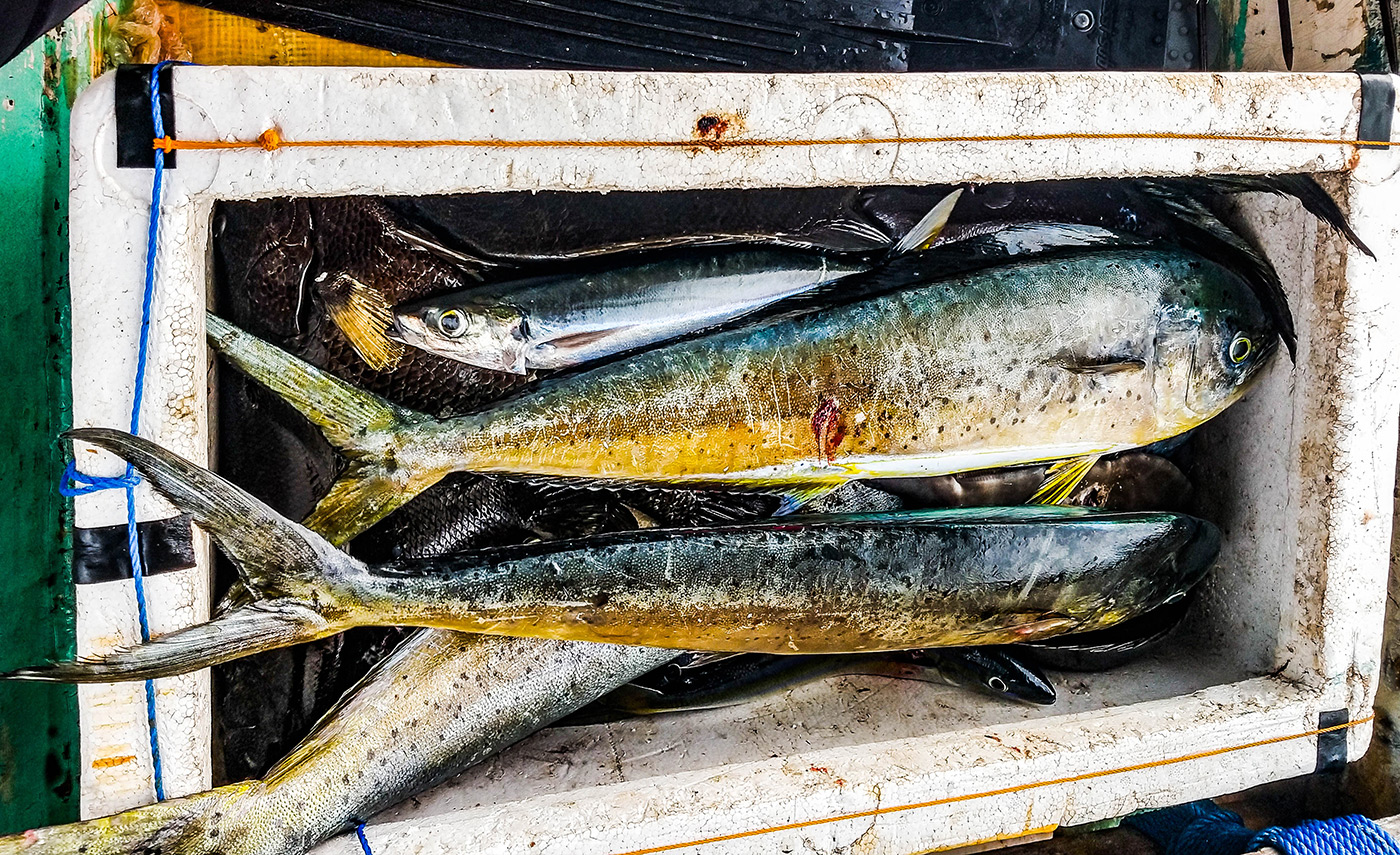Stories
| Scuba diving
Teach a Man To Fish...
Give a Man a Fish, and You Feed Him for a Day. Teach a Man To Fish, and You Feed Him for a Lifetime.
15.3. 2021 | Read time: 7 min
Should I catch fish?
Thankfully, I don't need to (yet), nor do I have to, to prove to myself (or anyone else for that matter) that I am a hunter, a valuable member of the tribe. There are numerous ways to prove my worth to the community. I do understand that fish play a vital role in the human diet. Certain parts of the world would certainly be exposed to severe poverty if there would be no more fish in the sea. Especially now, when most of the world feels severe effects of the Covid-19 pandemic. But that means that we should be even smarter with managing (yes, managing) the remaining fish stock.
From a fish perspective, it's a no-brainer. The most effective solution would be, that we all stop eating fish. But sadly, that sounds like something George Orwell would write in one of his novels. So, we need to rethink and make a compromise.
"From a fish perspective, it's a no-brainer. The most effective solution would be, that we all stop eating fish."
I'll focus on small-scale fishing communities, which depend on the daily catch, not the big nasty fishing ‘mafia’ industry. As you've might have guessed, my inspiration for this is based on the things I see. At the end of the day, I do live in a small fishing village.
After decades of unsustainable fishing practices, which resulted in huge loss of the natural environment -- try to imagine what a bomb blast does to a fragile coral reef -- things slowly started turning for the better. People diverted to a different way of benefiting from the abundant sea resources. The diving industry has become a thing. And with it, the need for accommodations, restaurants, souvenir shops, SPA, and other services became apparent. Guests were willing to pay to experience and explore the rich underwater paradise (imagine that!). So, it made more sense to make a career in the tourism sector, since fishing was considered (and it still is) one of the poorest professions (not to mention all the rules and regulations that were looming on the horizon and the fact that the yield was getting smaller and smaller). From what I understand, that was the golden age of the village, tourism was booming. There was a strong sense of conservation and the negative events caused by global warming were not frequent. Everybody (above and under the surface) was happy.
The early success of raising awareness for conservation and reef management yielded results and created a positive image of the village. And from what I know, Pemuteran back then was a real trend-setter in Bali; other villages set it as an example of how things should evolve.

The universal truth is that when there is a (false) sense of security, people tend to let their guard down. All you need is a series of misfortunate events and shit hits the fan. Conservation work should never stop -- it is an ongoing process. Either you acknowledge the responsibility to take care of the environment or you don't. The gray area in between is quite small.
It's a fact. Expanding tourism has negative effects on the environment. From unimaginable diving practices to a raging stampede of snorkelers who don't know how to swim. Proper waste management? Who needs that? Investing in another beachfront resort or opening yet another dive center seems more lucrative. The rapid expansion of tourism didn't go hand in hand with the development of the sustainable mindset frame that would keep things under control. If we add the escalating global warming events into the equation, the problem becomes increasingly difficult. The conservation activities slowly lost their momentum, skillful fishermen grew old and the younger generations had no real interest. The economy was growing and things looked quite okay.
All it took was a tiny virus that blew up into a full-scale pandemic. Global tourism stopped almost overnight and fishing became a necessity again, a means of survival.
The easiest way to catch fish is to set for the closest reef, throw a net in and scoop everything up, regardless of the size or species, together with a bunch of broken coral fragments and some sponges for decoration. To some, the idea of spearfishing with a scuba tank is also appealing. Honestly, it's way more effective than the chivalric breath-holding technique, especially during the night when you can catch them sleeping and off-guard.
"Conservation work should never stop -- it is an ongoing process. Either you acknowledge the responsibility to take care of the environment or you don't."
It's a fact. Expanding tourism has negative effects on the environment. From unimaginable diving practices to a raging stampede of snorkelers who don't know how to swim. Proper waste management? Who needs that? Investing in another beachfront resort or opening yet another dive center seems more lucrative. The rapid expansion of tourism didn't go hand in hand with the development of the sustainable mindset frame that would keep things under control. If we add the escalating global warming events into the equation, the problem becomes increasingly difficult. The conservation activities slowly lost their momentum, skillful fishermen grew old and the younger generations had no real interest. The economy was growing and things looked quite okay.
All it took was a tiny virus that blew up into a full-scale pandemic. Global tourism stopped almost overnight and fishing became a necessity again, a means of survival.
The ocean will provide.
The easiest way to catch fish is to set for the closest reef, throw a net in and scoop everything up, regardless of the size or species, together with a bunch of broken coral fragments and some sponges for decoration. To some, the idea of spearfishing with a scuba tank is also appealing. Honestly, it's way more effective than the chivalric breath-holding technique, especially during the night when you can catch them sleeping and off-guard.

Then there are some more arduous options. One could argue that fishing with a long bamboo stick up to your chest in water could be considered sustainable. But you can't stand in one place for hours; you have to move around. And there is nothing sustainable in walking all along the shallow coral reef in heavy rubber boots. Crunch, crunch.
Line fishing and fishing in the blue are not really cost-effective, nor safe. One needs to consider the cost of petrol and the boat, additional risks of being farther from the shore, and the invested time. But then again, obsession with time is more of an urban, fast-paced-world problem. If your alternatives are limited, spending eight hours at sea with a small (barely worth mentioning) chance of scoring big game makes it worthwhile.
There is also another, very dangerous option. Fishing with a compressor is strenuous underwater work done without proper dive training. Forget about the basic understanding of diving theory or equipment. Chances of getting the bends are high; eardrum rupture injuries are common. Nasty, long-lasting stuff. Even hypothermia.
I get it. Fishing on the reef is the easiest choice, but it's becoming pointless because there is almost nothing left to catch. It hardly justifies the costs. And in the long run, the price is too high to pay.
Now to the real questions. Can local, small-scale fishing ever be sustainable? Can the impact on the environment be so negligible that it won't add up to its destruction but help its recovery? Can the traditional way of fishing be preserved for future generations? More about it in my next story.
"One could argue that fishing with a long bamboo stick up to your chest in water could be considered sustainable."
Line fishing and fishing in the blue are not really cost-effective, nor safe. One needs to consider the cost of petrol and the boat, additional risks of being farther from the shore, and the invested time. But then again, obsession with time is more of an urban, fast-paced-world problem. If your alternatives are limited, spending eight hours at sea with a small (barely worth mentioning) chance of scoring big game makes it worthwhile.
There is also another, very dangerous option. Fishing with a compressor is strenuous underwater work done without proper dive training. Forget about the basic understanding of diving theory or equipment. Chances of getting the bends are high; eardrum rupture injuries are common. Nasty, long-lasting stuff. Even hypothermia.
I get it. Fishing on the reef is the easiest choice, but it's becoming pointless because there is almost nothing left to catch. It hardly justifies the costs. And in the long run, the price is too high to pay.
Now to the real questions. Can local, small-scale fishing ever be sustainable? Can the impact on the environment be so negligible that it won't add up to its destruction but help its recovery? Can the traditional way of fishing be preserved for future generations? More about it in my next story.

